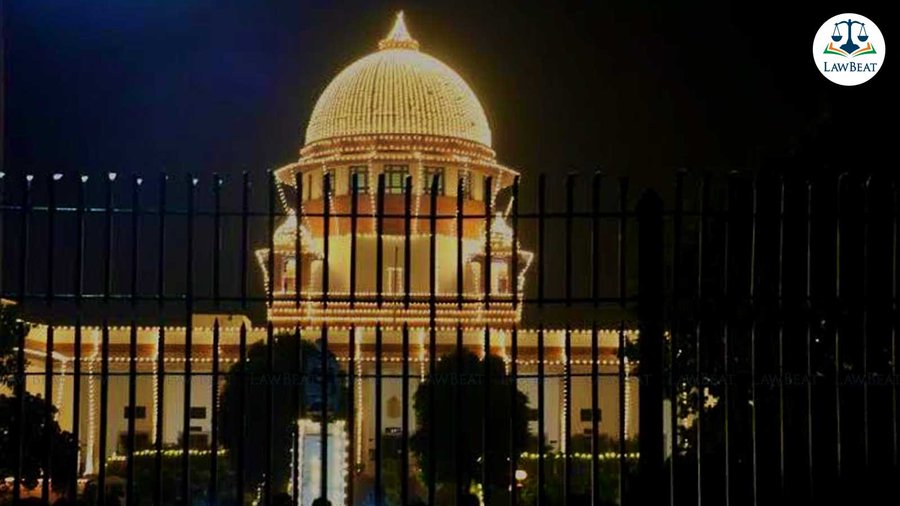'Legal aid to poor should not be poor': Supreme Court

Supreme Court asked high courts to consider the feasibility of issuing a practice direction for the convicts about free legal aid facilities for pursuing higher remedies
The Supreme Court on October 23, 2024, said that free legal assistance for poor and indigent at the cost of the State is a fundamental right of a person under Article 21 of the Constitution, even if the person does not seek legal assistance on his own.
A bench of Justices B R Gavai and K V Vishwanathan said that the right to counsel for a prisoner is a fundamental right traceable to Article 21 and the legal aid to the poor should not be poor legal aid.
Court was dealing with a PIL filed by one Suhas Chakma seeking directions to ensure that no prisoner is subjected to torture, cruel, inhumane and degrading treatment or punishment because of living in overcrowded and unhygienic conditions in jail.
Court issued a slew of directions, saying for the success of the functioning of the legal aid mechanism, awareness is the key.
"A robust mechanism should be put in place and periodically updated to ensure that the various beneficial schemes promoted by the Legal Services Authorities reaches the nook and corner of the nation and particularly, to those whose grievances it has set out to address. Adequate literature including in the local languages in the States and appropriate promotional methods should be launched so that the consumers of justice to whom the schemes are intended can make best use of the same," the bench said.
According to data from NALSA, information from SLSAs indicates there are 1,265 jails nationwide (including sub-jails and women’s jails), 1,256 Prison Legal Aid Clinics (PLACs), and 6,663 jail visiting lawyers. For the year 2023-24, NALSA has engaged with 456,798 inmates, providing legal assistance to 324,867.
Additionally, as of June 2024, 880 appeals for convicts were filed in sessions courts, 1,593 in high courts, and by September 4, 2024, 1,309 convicts had filed special leave petitions in the Supreme Court.
Court also noted that the Under Trial Review Committee meetings have resulted in the recommendation for release of 3,13,888 prisoners and the actual release of 1,52,570 prisoners across India. Acknowledging that there could be unintended lapses in the identification of prisoners, NALSA has taken corrective steps. NALSA also acknowledges the huge gap between the total number of persons identified and number of persons recommended for release and further the difference in the number of inmates recommended for release and the number of bail applications filed on their behalf.
"While commending the work already done by NALSA, the SLSAs and the DLSAs, we have no reason to doubt that the Legal Services Authorities at different levels will continue to work with the same momentum to achieve the constitutional objectives and objectives of the Legal Services Authorities Act, 1987," the bench said.
Court said that the NALSA in cooperation with the SLSAs and the DLSAs will ensure that the SOP on Access to Legal Aid Services to prisoners and functioning of PLACs are operated efficiently in practice. NALSA will periodically update and improve the measures prescribed under the SOP-2022 so as to address any of the inadequacies that may emerge while operating the same at the field level.
In its judgment, the court emphasised on taking measures to create awareness could be undertaken through the length and breadth of the nation to spread the message of the availability of legal aid.
"The Union of India and the State Governments shall continue to extend their cooperation and assistance to the Legal Services Authorities at different levels for the effective implementation of the measures taken by them," the bench said.
The court directed the Registry to forward a copy of the judgment to all the high courts in the country.
"The high courts may consider the feasibility of issuing a practice direction to the effect that all courts including the high court while furnishing the copy of the judgment of conviction/dismissal/reversal of acquittal/dismissal of bail applications, may append a coversheet to the judgment informing the convict about the availability of free legal aid facilities for pursuing higher remedies," the bench said.
The court said that the coversheet may set out the contact address and phone number of the legal aid committee attached to the court for seeking appropriate guidance. Similar information may be made available in the notices issued to the respondents by the concerned courts in appeals against acquittal. The high courts may on their webpage carry information about the legal aid facilities available in the State, it said.
